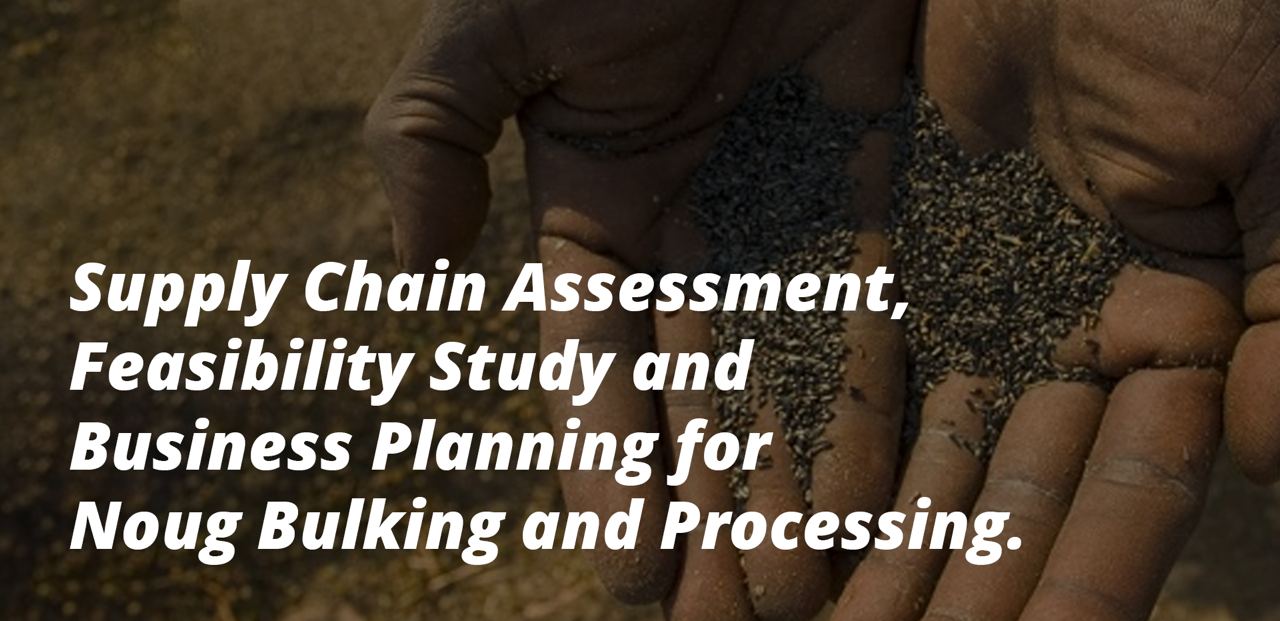Ethiopia is where Noug is originated and is the main exporter of it to the US and EU mainly for bird feed. It is produced potentially in different places of the country including Jimma area. Limu Inara multipurpose cooperative union (Limu) has been involved in bulking and domestic trading of this commodity nevertheless in recent years interrupted because of shortage of working capital.
Limu is engaged mainly in agricultural commodity trading in which coffee export takes the lion share. The union opts to diversify the export business as a risk minimization strategy and benefit farmers by reaching
potential markets.
This feasibility study aims at examining the economic viability of noug business for domestic trade or export and/or processing. In Ethiopia noug is utilized mainly in the form of edible oil for human consumption and the residual cake is used for animal feed. Very minor
amount is used to treat diseases like common cold and cough. Though noug
is produced in different places, the oil content of noug differs based on the
location where it is grown. About 87% of noug produced in Limu area goes to
central market and the remaining is consumed at farm households as seed
and traditional food staff like litlit.
The noug value chain is governed by central traders and local accumulators. At the moment the union and member cooperatives are not positioned in the noug value chain however the union can assume a position of local accumulator. To engage in the noug business, the union goes for feasibility study. Noug business feasibility study is conducted within the framework having five critical feasibility dimensions: Production, Market, Operational, Organizational and Financial perspective.
With production perspective, noug is native to Ethiopia and the county is the
biggest producer of noug seed in the world having 50% share. In the project area, a total land area of 15 thousand ha is covered with noug and production volume of 8.5 thousand ton is expected for 2013/4 harvest year. Nono Benja,Limu Seqa and Chora Botter have noticeable production volume in order of amount produced. Noug is the second most commercial oilseed crop (next to sesame) contributing about 35% of the total annual oilseed export earnings in 2013. Noug in Ethiopia has two potential markets: the edible oil industry and the export market.
Though Ethiopians have strong preference for noug oil, the subsidized palm oil is cheap and taking over the market. Hence, it will not be viable for the union to engage in noug processing business on top of the operational complication. In this respect the financial analysis and a relative easiness of the export business suggests the export business is more profitable for the union to undergo. In terms of organizational capability, there appears well structured management and employee. There also exists good synergy and understanding between board and management but limited representation and participation of oil seed and grain cooperatives in the board. This resulted in much attention on coffee as compared to the others businesses.
Moreover, the union has motivated and committed staff who has achieved stretched targets over the years including organic certification. Limu regularly review and audit its operations by independent auditors and conducts bi-annual general assembly meeting and regular board meeting to hear results and monitor progress.

